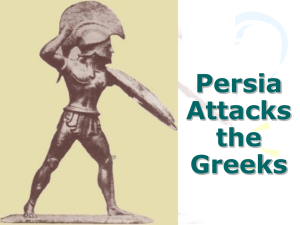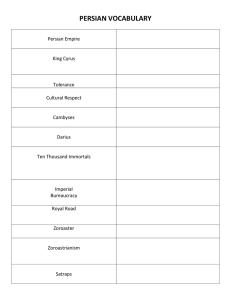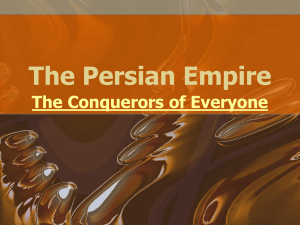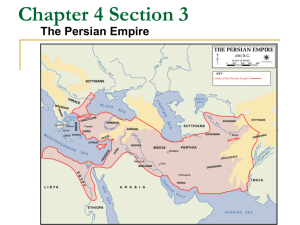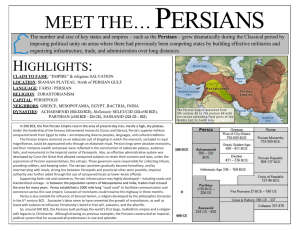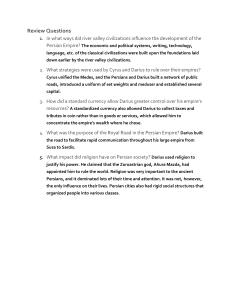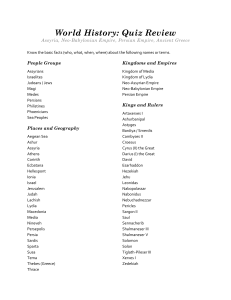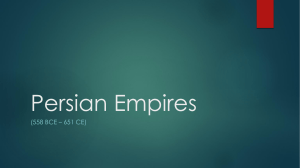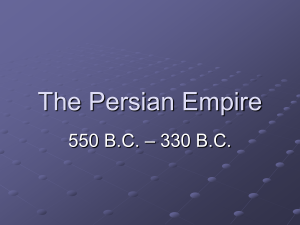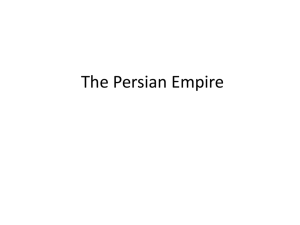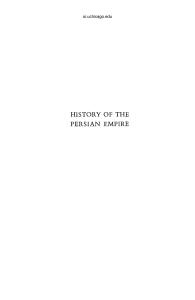The Persian Empire
advertisement
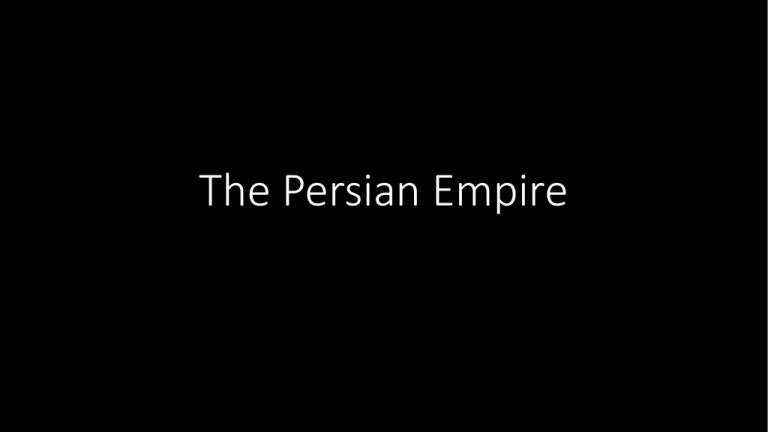
The Persian Empire The Rise of Persia • Persians will use diplomacy and tolerance with strong military to back up policies • Ancient Persia included modern day Iran • 1000 BCE Indo-Europeans migrate to Iran • Good resources which helped trade • Copper, lead, gold, silver • Organized into tiny kingdoms at first Cyrus the Great Forges an Empire • 550 BCE Cyrus began Persia’s conquest of neighbors • Empire spanned over 2,000 miles • Soldiers had leather pants and thick boots and short bows • Army was very successful between 550-539 BCE conquering the entire Fertile Crescent and most of Anatolia The Rule of Cyrus the Great • He was kind to people he conquered • No looting or burning of villages he conquered • Honored local customs and religions • Pray at local temples • Subject peoples had freedom • Allowed Jews to return to Jerusalem (remember they were exiled by the Babylonians) • Died fighting nomadic groups The Rule of Cambyses and Darius • Cambyses, Cyrus’s son, captured Egypt but was not fair and good to them so there were widespread rebellions • 522-521 BCE Darius, a noble of the ruling dynasty, seized the throne • Extended Persian conquests in the east • Never managed to capture Greece • Established an efficient and wellorganized administration Provinces and Satraps • King divided empire into 20 provinces in order to control them • Each province could practice its own religion, follow its own laws, and speak its own language • A Satrap (governor) was appointed to rule over each territory • Army leader and tax collection for each province • Darius sent out inspectors to ensure the loyalty of the satraps The Royal Road Enhances Trade and Communication • Royal Road • Stretched 1,677 miles • 111 relay stations along the road spaced about 15 miles apart • Manufactured metal coins that had a standard value, which promoted trade Zoroastrianism • Zoroaster was a Persian prophet that lived about 600 BCE and addressed the question of human suffering • Zoroastrianism • Two armies that fight for a person’s soul • Ahura Mazda- god of truth and light • Ahriman – god of evil and darkness • When you die, souls are judged based on which god they followed and would either go to paradise or a fiery pit • Avesta- holy writings of the religion • Spread to parts of India where it became the Parsi sect • Influenced Manicheanism, a religious system that competed with Christianity The Legacy of the Persian Empire • Brought political order to southwest Asia • Respect for conquered cultures allowed those cultures to flourish for years
